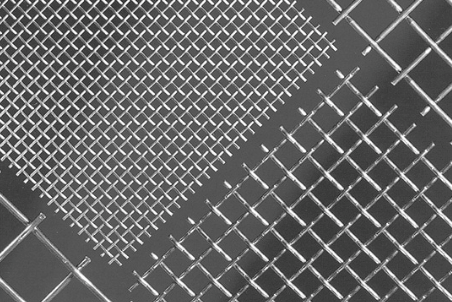Metal Coffee Filters: The Benefits of Using Woven Wire Mesh
For a lot of us, coffee serves as the spark needed to maintain productivity throughout the day. While there are various ways to brew coffee, there is something about traditional drip coffee that makes for a seamless, nostalgic experience.
But in order to brew the perfect cup, your drip coffee maker must be accompanied by a suitable coffee filter. While paper filters have been the go-to medium, metal coffee filters, specially woven wire mesh, are drastically growing in popularity.
Having said that, why should manufacturers be integrating metal coffee filters into their coffee maker designs?
W.S. Tyler has helped create a more sustainable world by helping customers integrate woven wire mesh for over 150 years. We strive to help you understand the capabilities of woven wire mesh so you can best leverage it to ensure your product meets customer expectations.
And with that, we wrote the following article to highlight the beneficial qualities wire mesh coffee filters have to offer. It will cover:
- How coffee filters work
- The definition of woven wire mesh
- How woven wire mesh differs from traditional paper coffee filters
- The cost of woven wire mesh
How Does a Coffee Filter Work?
In traditional drip coffee makers, a heating element is used to heat water that you pour into the machine's water reservoir. When the water gets hot enough, bubbles begin to form and project water out of the shower head onto the coffee grounds.
As the hot water saturates the coffee grounds, it carries the coffee oils into the pot. A reliable coffee filter works to hold the coffee grounds while the water passes through, preventing coffee grounds from finding their way into your freshly brewed coffee.
What Is Woven Wire Mesh?

Woven wire mesh is a series of individual metal wires that are interwoven to form a metallic cloth outfitted with rigid, precise pore openings. A centuries-old weaving technique is used to fabricate these wires into specific weave patterns that deliver their unique performance advantages.
When compared to similar materials, woven wire mesh's ability to be fully customized makes it stand out. It allows manufacturers to control the alloy, mesh count, wire diameter, opening size, etc., prior to being woven.
This ensures you achieve desirable filtration performance.
You can also apply several value-added services after your mesh has been woven. Techniques such as heat treatment, welding, forming, and plastic injection molding can be applied to enhance the performance of your wire mesh coffee filters.
Metal vs Paper Coffee Filter: What’s the Difference?
Possibly the most notable difference between wire mesh coffee filters and paper filters is the sustainability of the products. As woven wire mesh coffee filters are typically fabricated from a 300-series stainless steel alloy, they can be cleaned after brewing and reused.
Paper coffee filters, on the other hand, can only be used once before being discarded.
Another key difference between wire mesh coffee filters and paper filters is the flavor it produces. Paper coffee filters tend to be finer than wire mesh filers, catching more oils and solids.
As a result, coffee brewed using paper coffee filters will taste smooth and crisp. Coffee brewed using wire mesh coffee filters will taste bold and rich.
Switching gears to compatibility, a key benefit to woven wire mesh coffee filters is that they can be formed and fused with various polymers to create proprietary parts. This helps eliminate doubts associated with finding a filter that fits, creating a seamless brewing experience for users.
Now, addressing the elephant in the room, paper coffee filters are known to have a cheaper price tag than wire mesh coffee filters. But you typically only need one wire mesh coffee filter over the lifecycle of a coffee maker, whereas you'll go through hundreds of paper filters.
In other words, the daunting upfront cost of a wire mesh coffee filter will prove to be cheaper than the hundreds of paper filters you purchase once it's time to replace your coffee machine.
How Much Does Woven Wire Mesh Cost?
When fabricating metal coffee filters out of woven wire mesh, it is important that wire mesh can be purchased in three forms: cut-to-size pieces, rolls, and fabricated filters. Each form has a set of factors that will control how much you pay for your mesh.
Cut-to-size pieces and rolls are typically purchased by those looking to handle wire mesh fabrication in-house and are affected by the same pricing factors. These factors include:
- Length of the roll
- Width of the roll
- Mesh specification of the role
- Required complacency (i.e., DFARS)
- Post-weaving service requirements
- Order Quantity
Fabricated filters, on the other hand, are generally purchased by those that don't have the time or capacity to fabricate wire mesh coffee filters themselves. The factors that will influence the cost of fabricator wire mesh coffee filters go as follows:
- The profile of the filter
- Order Quantity
- The mesh specifications used
- The components of the filter
- Post-weaving service requirements
- Required complacency (i.e., DFARS)
- Labor
It should be known that the weave pattern will have a notable impact on the cost of your wire mesh coffee filters. Standard square weave patterns are generally less expensive than filter cloth weave patterns.
This is primarily because the more complex filter cloth weave patterns tend to take more time, material, and attention to detail to weave when compared to square weave patterns. While they are more expensive, filter cloth weave patterns offer a superior balance of filtration and throughput performance.
To that end, square mesh patterns are the predominantly used speciation when fabricating wire mesh coffee filters.
Keep Coffee Grounds Out of Your Freshly Brewed Coffee With Calculated Mesh Specifications
Coffee is one of the products that a lot of people depend on to get a jumpstart on the day. To ensure you brew what you believe is the perfect cup, your coffee maker must be paired with a coffee filter compatible with keeping unpleasant coffee grounds out of the brew.
Fortunately, modern technology allows wire mesh manufacturers to generate virtual calculations of how a given mesh specification will perform. This, in turn, allows them to avoid the frustrations of trying to fine-tune a solution that best accommodates their needs and make sure their operation is up and running promptly.
For 150 years, W.S. Tyler has been making strides to help customers weave wire mesh into their process, helping their products stand out in the market.
To learn more about designing your wire mesh coffee filters virtually, read the following article:
About Ronnie Brown
Ronnie is the Content Writer for W.S. Tyler and has four years of experience as a professional writer. He strives to expand his knowledge on all things particle analysis and woven wire mesh to leverage his exceptional writing and graphic design skills, creating a one-of-a-kind experience for customers.




